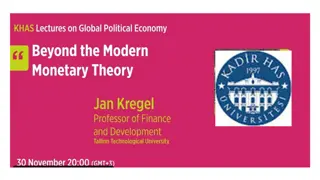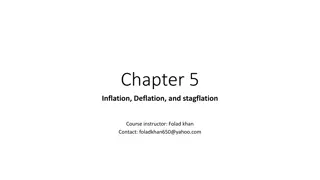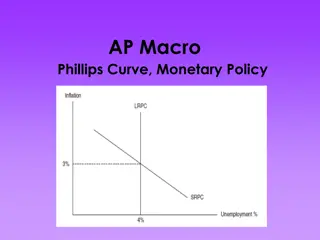Origin of Hedge Funds and MMT's Economic Principles
Hedge funds began with relative value sovereign bond trades, while Modern Monetary Theory (MMT) emphasizes government as the supplier of jobs for full employment. MMT challenges traditional economic norms, advocating for deficit spending and disregarding the need for balancing budgets. It integrates
0 views • 22 slides
Understanding Inflation, Deflation, and Stagflation in Economics
Inflation is the continuous increase in the general price level, leading to a loss of the money's value. This chapter explores the causes of inflation, including demand-pull and cost-push factors. Remedies such as monetary and fiscal policies are discussed to control inflation. Additionally, the con
0 views • 14 slides
Understanding the Phillips Curve and Its Implications
The Phillips Curve, introduced by economist A.W. Phillips in 1958, initially showed an inverse relationship between unemployment rate (u%) and inflation rate (tt%). This led policymakers to consider a trade-off between reducing unemployment and increasing inflation. However, the concept faced challe
0 views • 22 slides
A Look at the Crisis and Resurgence of 1969-1980 in American History
The period from 1969 to 1980 in the United States was marked by significant events such as the Equal Rights Amendment, the feminist backlash, Nixon's approach to civil rights, Democratic Congress initiatives, economic challenges leading to stagflation, the Energy Crisis, and Nixon's foreign policy t
0 views • 15 slides



